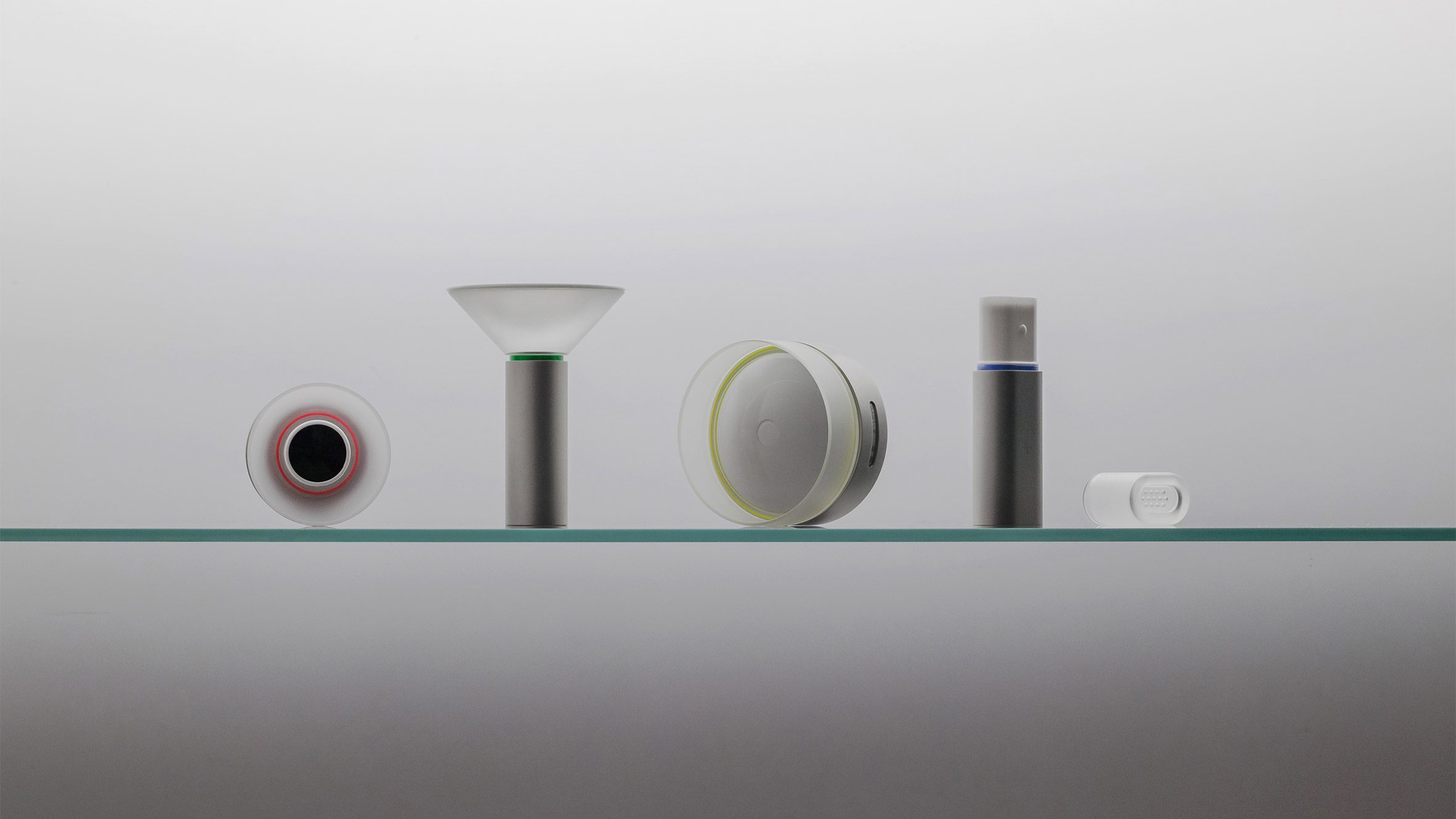Design studios Map Project Office and Modem have collaborated on a project focused on a diagnostics kit enhanced by artificial intelligence, with the aim of empowering patients to conduct basic self-assessments.
The collaboration resulted in the creation of the Smart Aid Kit, which envisions a future where artificial intelligence (AI) plays a crucial role in improving healthcare accessibility. The kit integrates four distinct sensors that resemble a stethoscope, spirometer, ophthalmoscope, and skin scanner. The Smart Aid Kit is designed to utilize AI for remote health diagnosis and management, demonstrating how individuals and communities with limited access to traditional healthcare services can perform diagnostic tests typically administered by healthcare professionals.
Van de Poel, a co-founder of Modem, emphasized the importance of universal healthcare, especially for underserved populations, highlighting how recent advancements in AI can bridge healthcare gaps. The Smart Aid Kit leverages large language models (LLMs) to effectively respond to user inquiries by processing extensive datasets.
The toolkit includes user-friendly diagnostic instruments capable of scanning various health parameters, enabling users to independently manage their well-being. Data collected by the sensors is transmitted to a central unit housing the LLM for diagnosis and real-time feedback. The concept envisions deploying the Smart Aid Kit in public spaces, similar to automated external defibrillators (AEDs).
The kit’s design incorporates purpose-built hardware with advanced AI technologies to empower users in managing their healthcare needs proactively. The tools within the kit, such as the ophthalmoscope and skin assessment tool, assist the AI in identifying various health conditions. The design prioritizes simplicity, functionality, and user familiarity, with color-coded bands distinguishing each device.
The Smart Aid Kit includes a text-based user interface powered by the LLM, tailored for non-professional users. This intuitive interface combines voice and text prompts to guide users through device operations, offering friendly advice akin to a general practitioner consultation. The creators hope this project will spark collaborations with industry partners to transform the concept into tangible solutions, enhancing healthcare accessibility for all.






